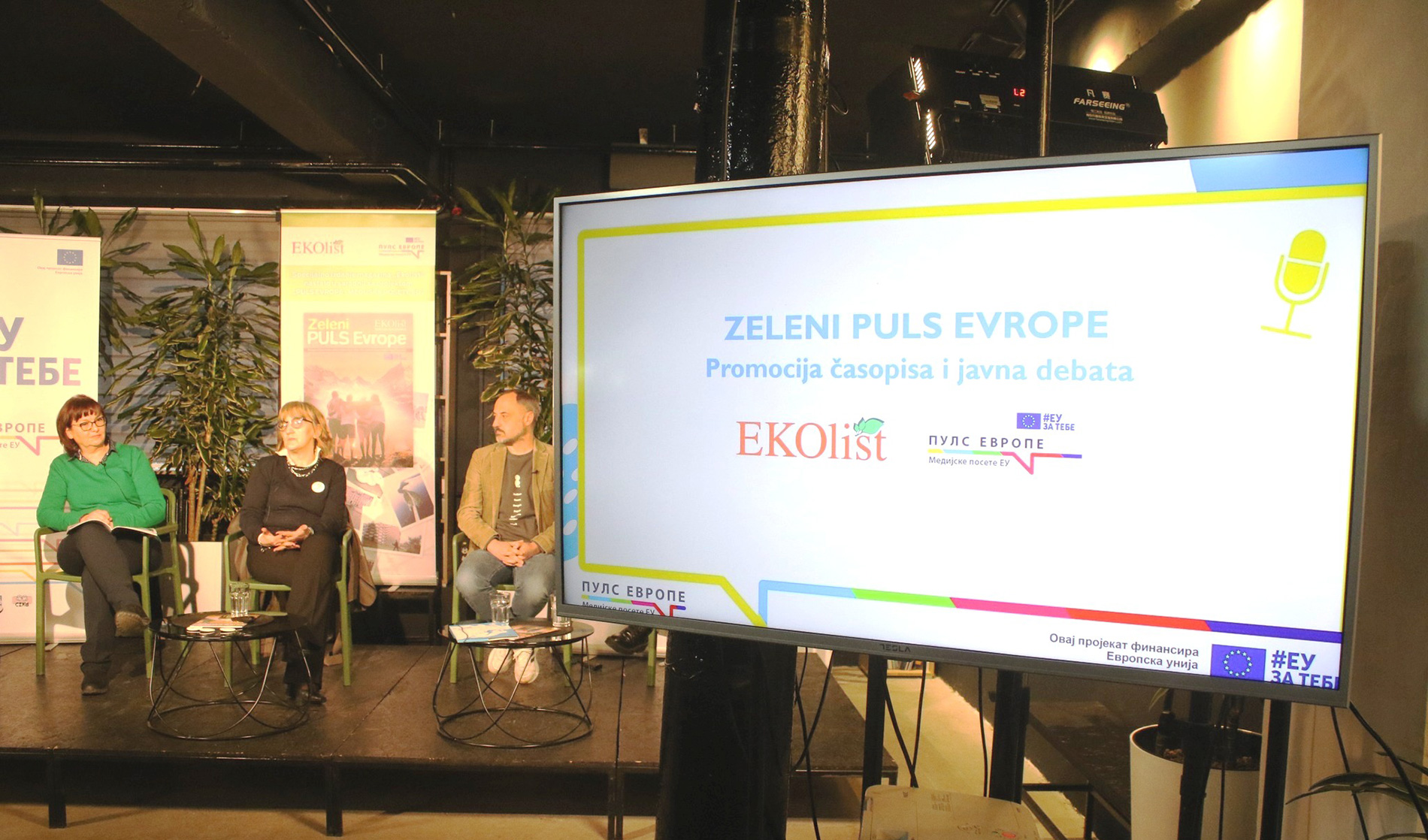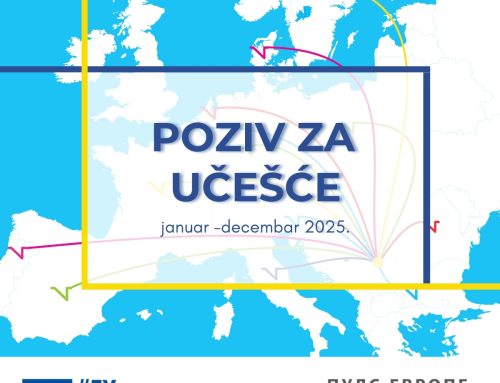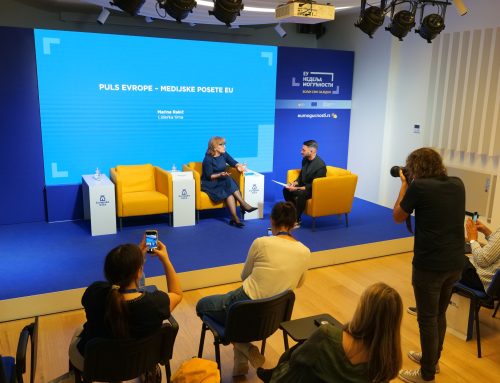Examples of the best European practice in the environmental protection from Italy, Denmark and France, which were investigated by the journalists of the Serbian media through the “Pulse of Europe” project, were presented to the public in Belgrade and Novi Sad, in cooperation with the magazine Ekolist and with the participation of experts in ecology and climate change. Simultaneously, the “Green Pulse of Europe” was presented, a special edition of Ecolist which contains author’s texts on environmental protection created during media trips.
Ekolist is the only printed magazine in Serbia that deals with environmental protection, and the issue of “Green Pulse of Europe” contains more than 15 contributions by journalists who explored the topics of the environment, circular economy, sustainable development, climate change in Grenoble, Ljubljana, Copenhagen, Barcelona, Trieste and other European cities. At the promotion held in Belgrade on 31 January, the leader of the “Pulse of Europe – EU media trips” project Marina Rakić stated that environmental protection was the in the first place among all topics of media trips, both in terms of the interest of journalists and the resulting texts. Climatologist Vladimir Đurđević presented detailed research on the warming of the planet. He said that the European Union takes the problem of climate change seriously and that “the Green Deal represents the largest synchronized investment in the transformation of society.” The results of that agreement are already visible, said Đurđević and assessed that in this sense the trend of publishing media reports on environmental protection will continue.
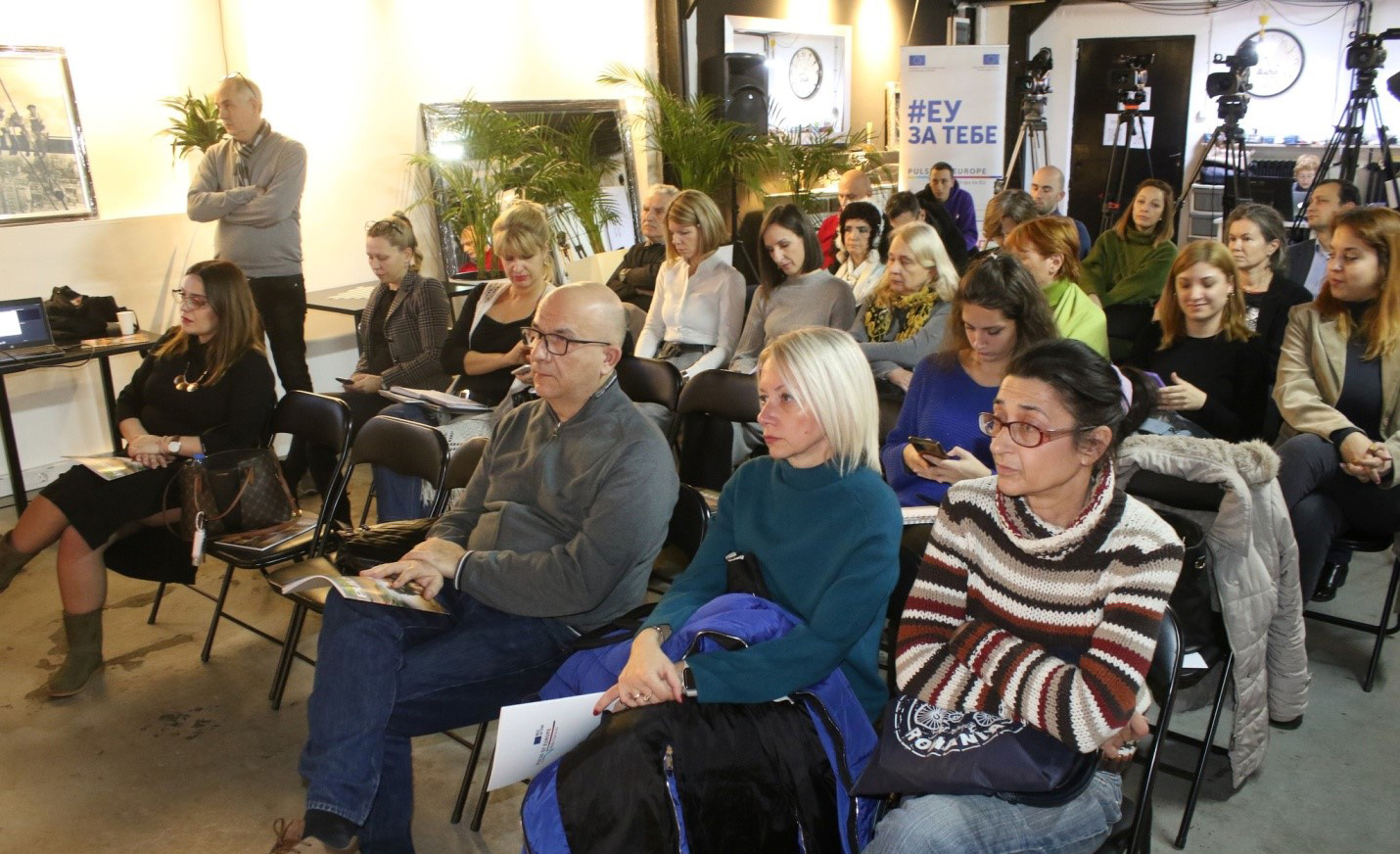
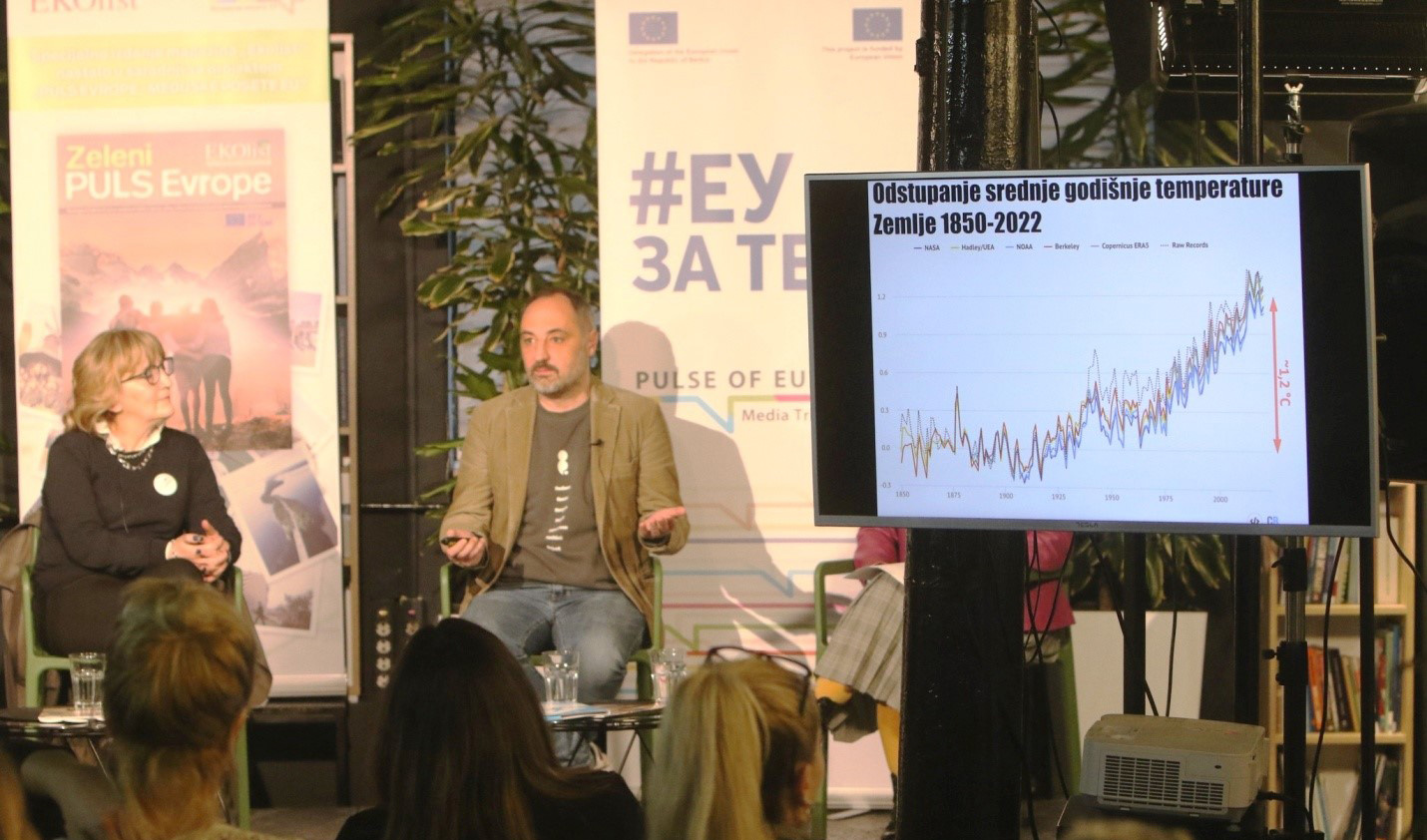
Radio Novi Sad journalist Dragana Ratković presented to the participants in detail why Grenoble is the European Green Capital: a city with 450 kilometers of bicycle lines, which has already decarbonized the city’s public institutions and is implementing a project of autonomous buildings, also invests a lot in sustainable development and preservation of biodiversity. RTS journalist Maja Stojanović shared her experiences from a media trip to the north of Italy, where she visited a modern waste incinerator in Trieste and researched how students in Italian schools learn about ecology and sustainable development from the earliest grades. “Italians are very good at recycling – the recycling rate is 79 percent, and I witnessed my host family carefully sorting waste into special bags with electronic chips,” she said.
The promotion of the “Green Pulse of Europe” in Novi Sad was held at the Eđšeg Cultural Station on 23 February 2023. It was marked by the discussions with representatives of the Provincial Institute for Nature Protection and the presentation of successful examples from Denmark and Italy.
The representative of the Provincial Institute for Nature Protection Alen Kiš said that the distribution of forest cover in Serbia is uneven – 30 percent of the land is forested at the national level, and only 7 percent in Vojvodina. Although significant funds have been allocated for forestation in recent years, the response of the population and business entities is not great, said Kish, who assesses that the solution should be, as in the world, agro forestry, which should be pursued.
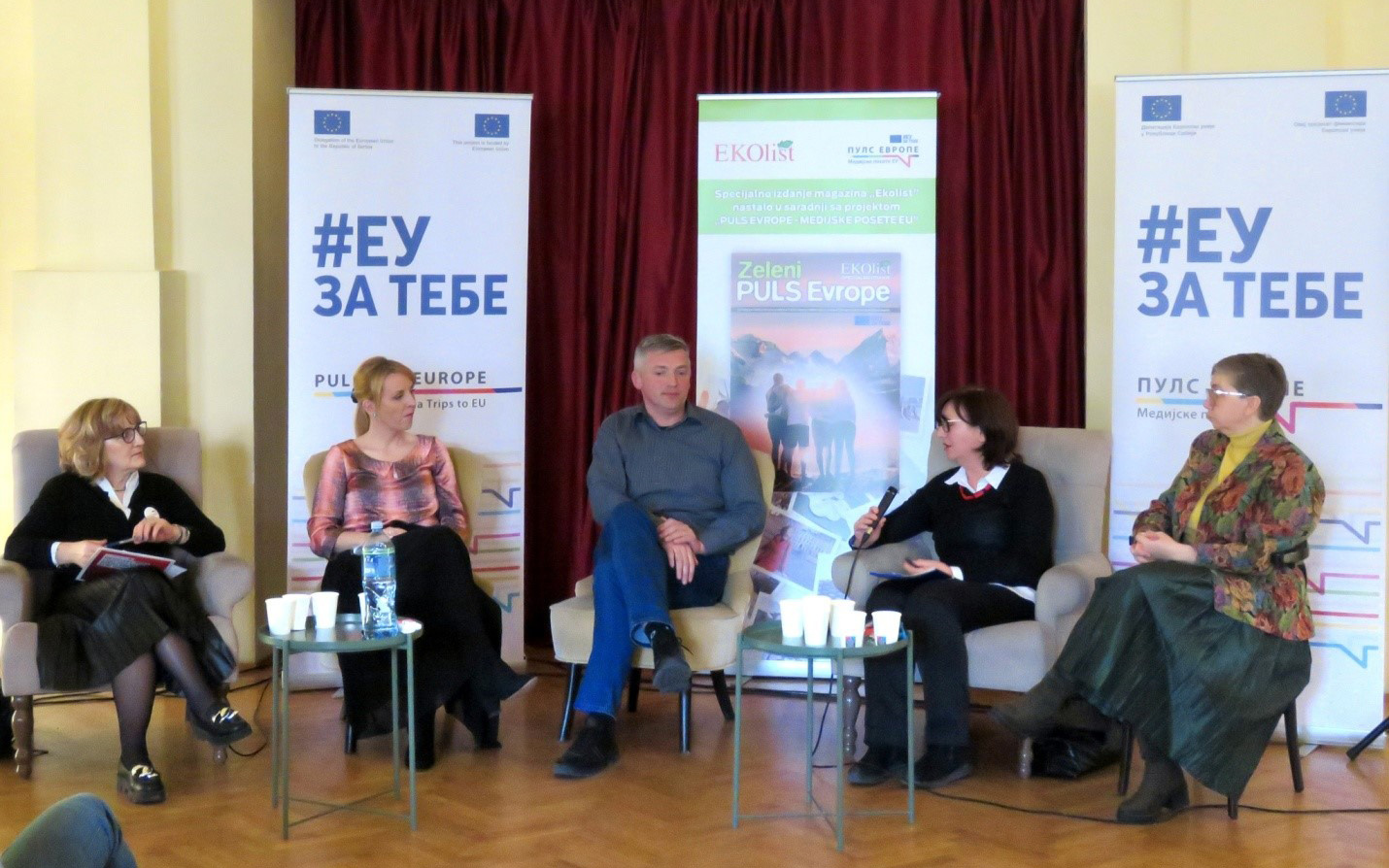
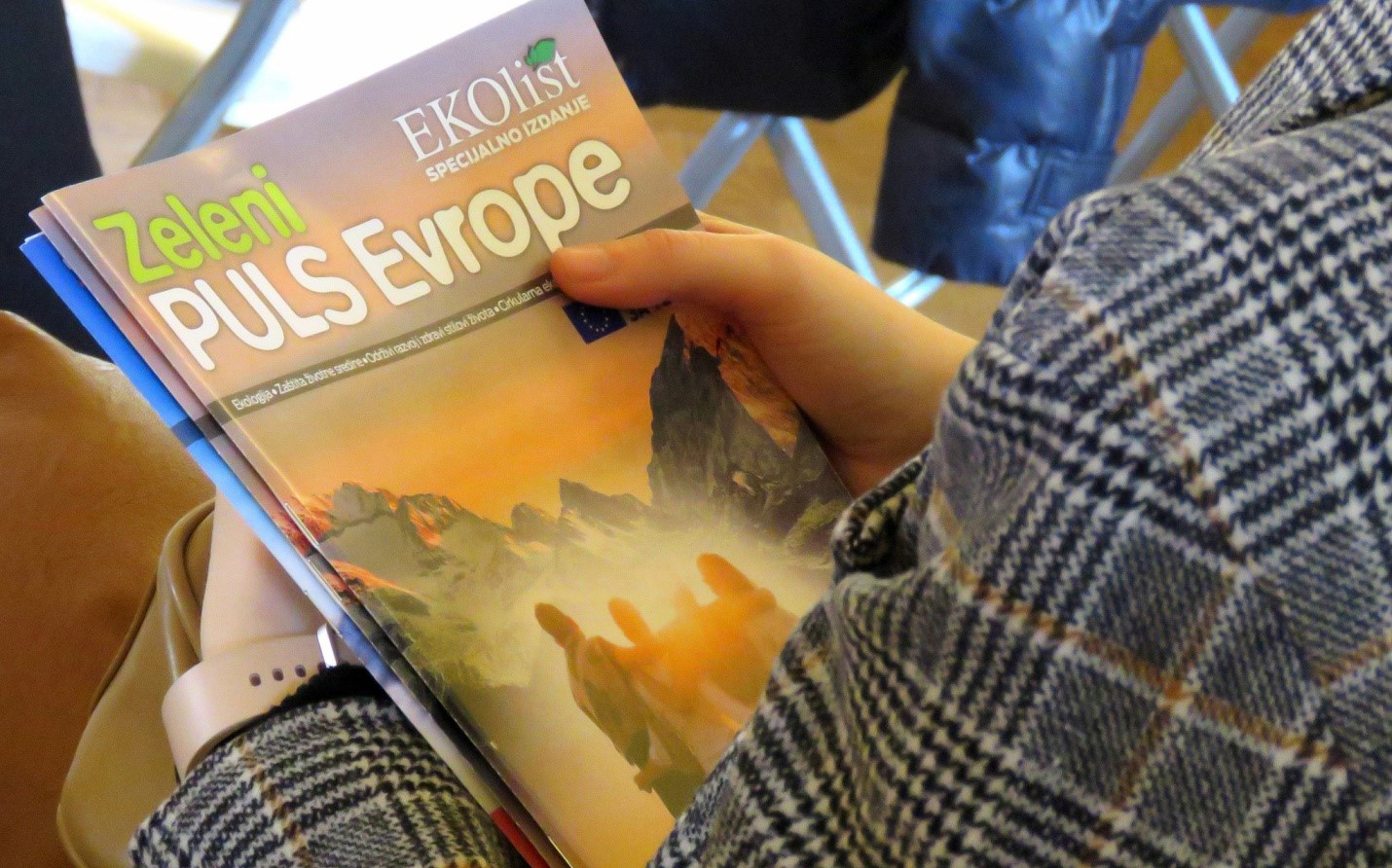
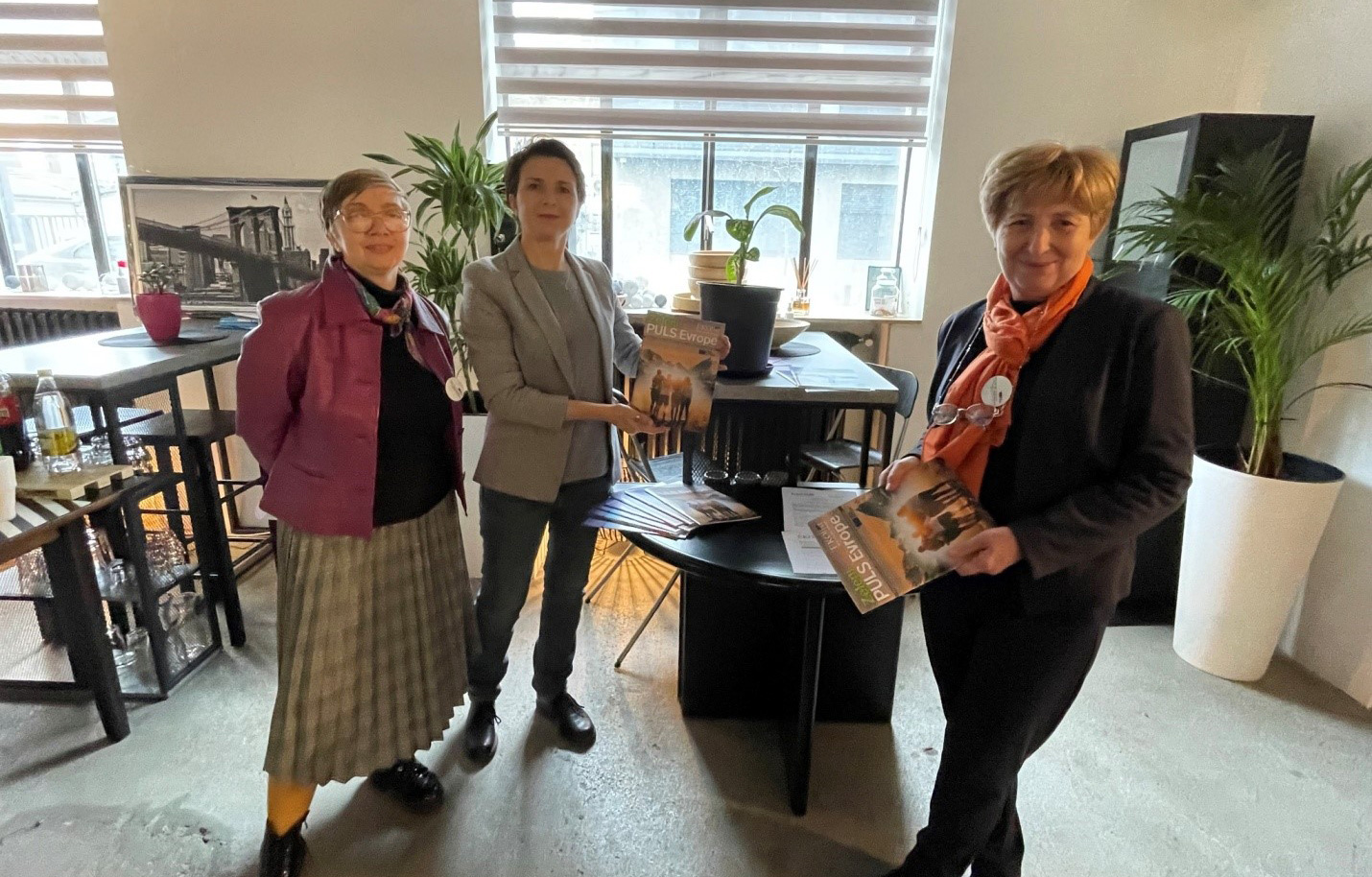
Ekolist journalist Majda Adlešić, who had participated in a media vtrip to Denmark, presented ecological solutions in Copenhagen, which in the city itself has Copenhill – a plant with a waste incinerator that produces heat and electricity but that has a ski resort at its top. There is a wastewater treatment plant in nearby Hillerod, but it is underground and has an ecological park on its roof.
Denmark is a good example for us and for other countries in the region because they are the leading country in terms of environmental protection solutions in Europe, said Adlešić and added that the biggest impression on her was the combination of landscaping with solutions to solve or improve problems in the field of environmental protection. Promotions in two cities were attended by journalists, representatives of the non-governmental sector and institutions.

